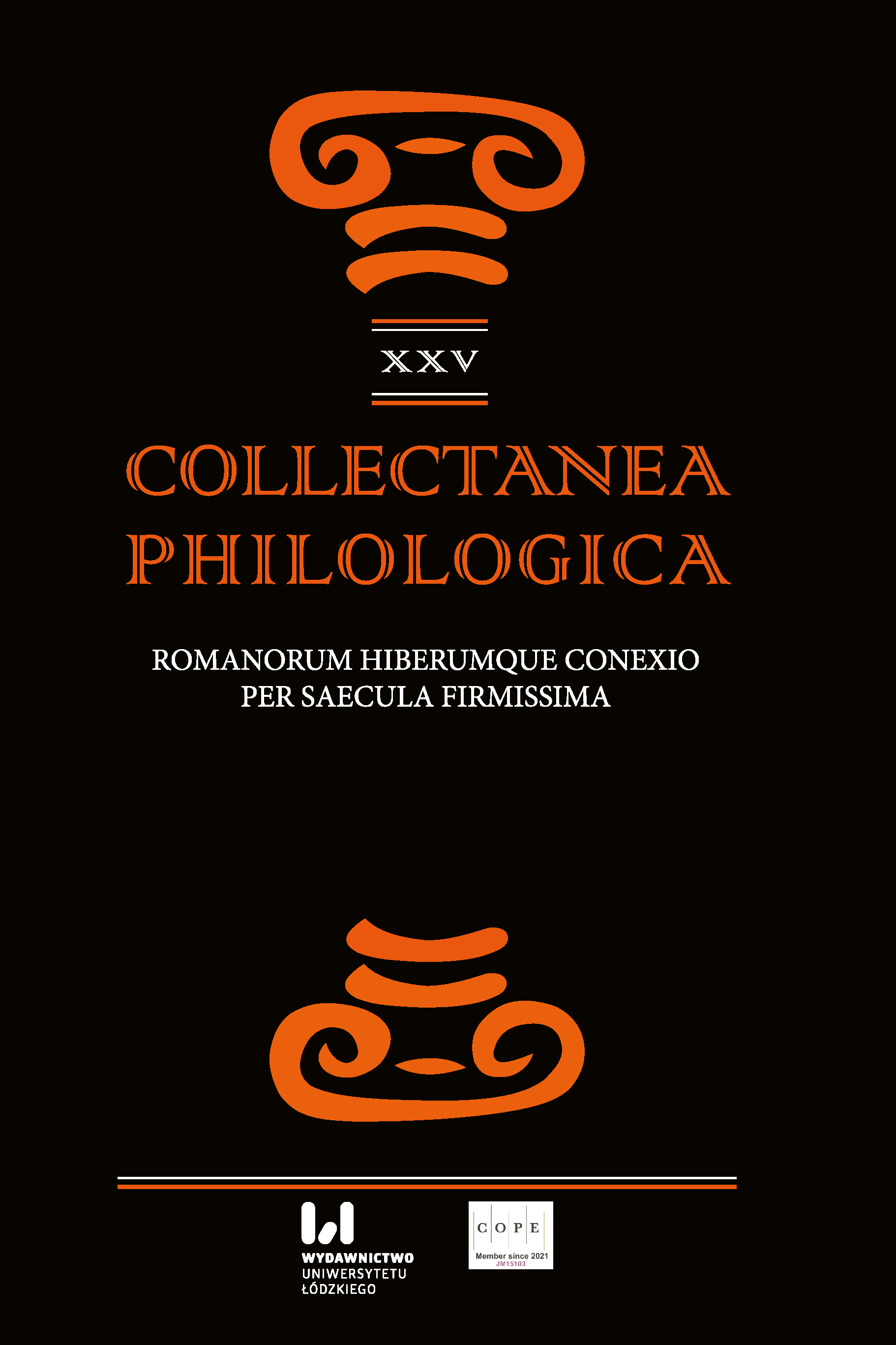Ars memorativa i nauczanie retoryki w kolegiach jezuickich. Recepcja dzieł:"Rhetorica ad Herennium", "De oratore" Marka Tuliusza Cycerona i "Institutio oratoria" Marka Fabiusza Kwintyliana w podręczniku "De arte rhetorica" libri III CiprianodeSoareza
Ars Memorativa and the Teaching of Rhetoric in Jesuit Colleges. The Reception of the Works: "Rhetorica ad Herennium", "De Oratore" by Marcus Tullius Cicero and "Institutio Oratoria" by Marcus Fabius Quintilian in the Manual "De Arte Rhetorica" Libri
Author(s): Agata KonradSubject(s): History, Studies of Literature, Ancient World, Latvian Literature
Published by: Wydawnictwo Uniwersytetu Łódzkiego
Keywords: Rhetorica ad Herennium; Cicero De oratore; Quintilian Institutio oratoria; ars memorativa; memoria; memory; rhetorical memorisation; art of memory; De arte rhetorica libri III; Cipriano de Soarez; tea
Summary/Abstract: Members of the Society of Jesus, as didacticians (and humanists), were aware of the importance of the memoria for the delivery of speech. For this reason, they did not omit this opus oratoris in rhetorical studies intended for their students. An example of this is the textbook De arte rhetorica libri tres ex Aristotele, Cicerone, et Quintiliano praecipue deprompti by the Portuguese Jesuit Cipriano de Soarez (1524–1593). The aim of the research was to trace the influence of Rhetorica ad Herennium, De oratore by Marcus Tulius Cicero and Institutio oratoria by Marcus Fabius Quintilian on the rhetorical theory presented by Soarez concerning ars memorativa. An attempt was also made to determine what the teaching of rhetoric looked like in Jesuit colleges, which was helped by the Ratio studiorum treatise (1599). In the course of comparative analysis, it was found that the Portuguese teacher mainly drew on Marcus Fabius Quintilian’s Institutio oratoria.
Journal: Collectanea Philologica
- Issue Year: XXV/2022
- Issue No: 1
- Page Range: 51-71
- Page Count: 21
- Language: Polish

